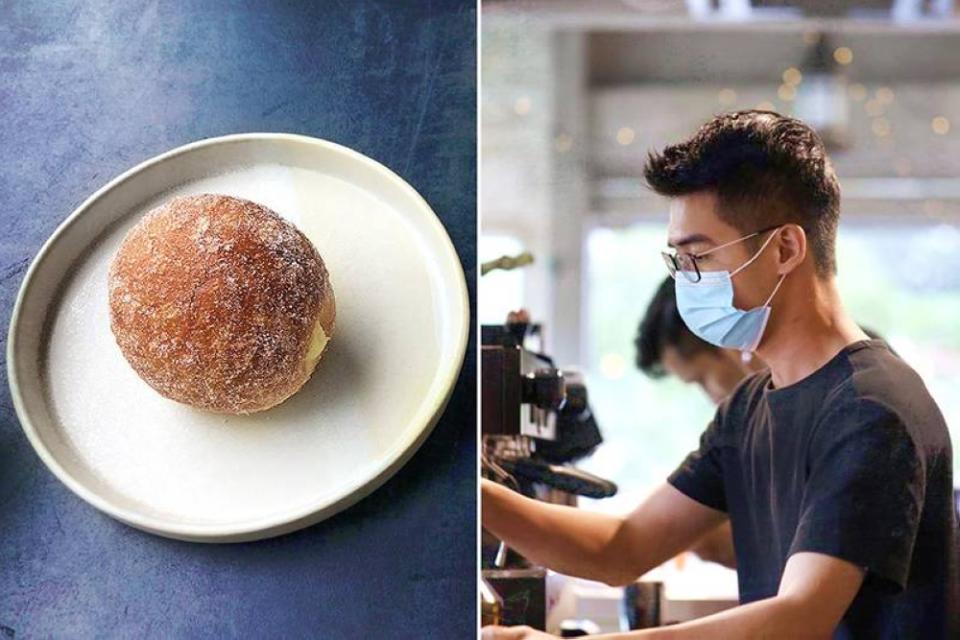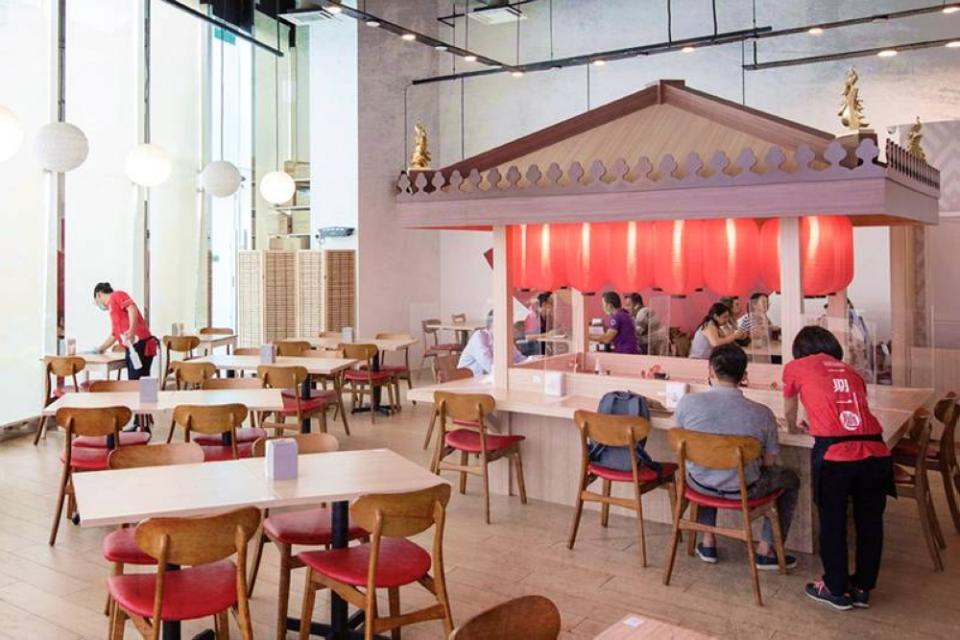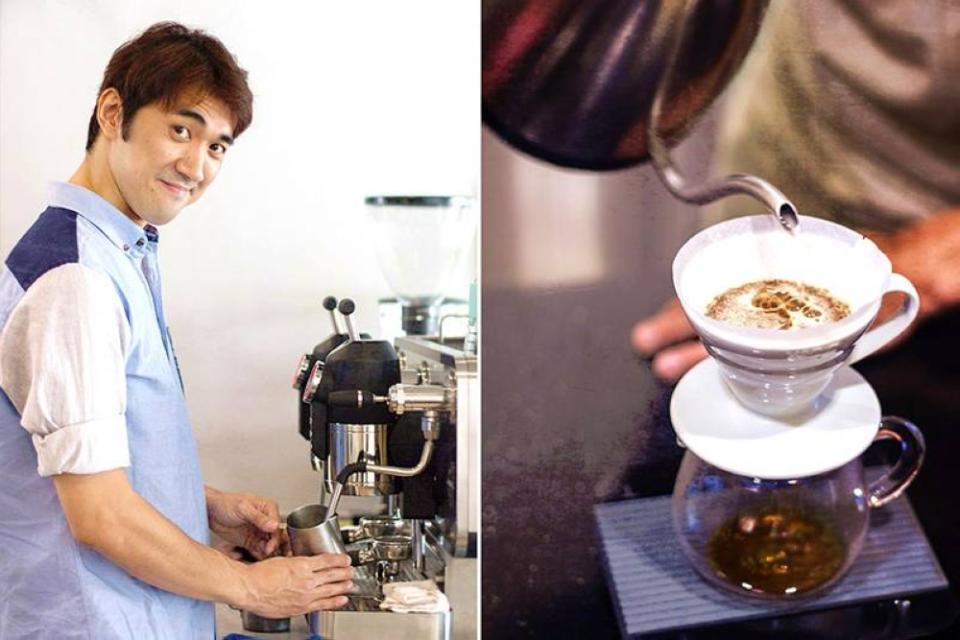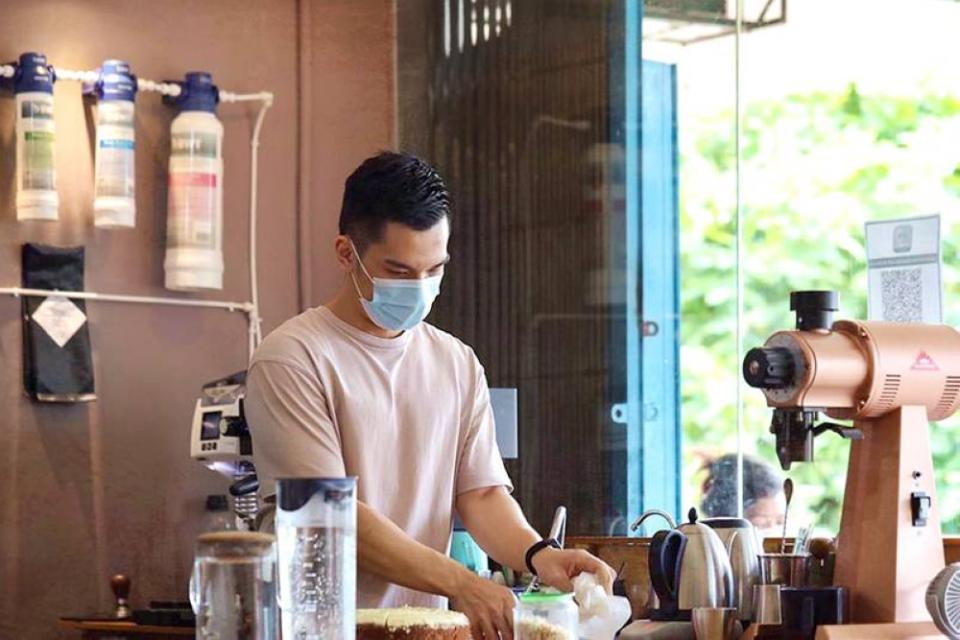From blue lobsters to the ‘bombolone’ craze: What I learned from writing 100 ‘Flavours of Business’ stories


KUALA LUMPUR, July 7 - The food and beverage (F&B) industry is a fickle thing.
At least, that appears to be my main takeaway after talking to a hundred different F&B businesses in the past five years, as part of my "Flavours of Business” series.
From a Hock Chew cuisine private kitchen in Rawang (No. 2) to an old school bread truck run by a young couple in Taman Desa (No. 26). There are F&B entrepreneurs doing sous vide steaks in PJ (No. 78), Japanese puddings in Penang (No. 89) and growing a coffee microroastery business in JB (No. 6).
Readers who were gym goers learned, as I did, how we could all get our protein fix from protein powder (No. 18), pea milk (No. 28) or even roasted crickets (No. 19)!
Such deep dives into the challenges that these entrepreneurs — many of them novices in the food industry — faced continue to be revelatory, even years afterwards. What I have been trying to glean were what it takes to launch, run and grow an F&B business in today’s risky climate.
Here are a few lessons that I learned after writing 100 of these "Flavours of Business” stories:
#1. Observe constantly, be willing to change, and pivot quickly
One of my favourite F&B interview subjects is Derry Teh of Ground Coffee in Damansara Uptown. I started visiting his bakery-café when they first opened in mid-2019 and fell in love with their passionate attitude towards specialty coffee, croissants and the oh-so-trendy bombolone (filled doughnuts).
How was Teh able to launch a shop that felt to many like an overnight success? The truth, as it nearly always is, was that none of the accomplishments were achieved overnight but rather over years of careful studying, analysing and planning.
It has been a long journey for Teh, having started Caffeinated Cabin, his first café, when he was only 19 years old! Realising that he needed more of both capital and experience, Teh moved to Singapore to learn the ropes of running a professional café.

During the pandemic, Derry Teh of Ground Coffee pivoted to delivering ‘bombolone’ boxes to customers.
Fast forward a few years later, when the Covid-19 pandemic hit less than a year after opening Ground, Teh was able to call upon his hard-earned experience to swiftly adapt the café’s processes, such as delivering pastry and bombolone boxes to their customers.
By being willing to change quickly, Ground has now secured new avenues for sales, even after the lockdowns have ceased.
Teh shares, "Our bombolone boxes have been a hit, especially for customers who send them as gifts to their friends and families. Companies would send pastry boxes to their staff while other customers request for vegetarian pastries.”
#2. Know your customers.... and how to reach them
This willingness to adapt to shifting customer demands is also reflected at Shah Alam’s Ichikakuya, where Yokohama style iekei ramen takes centrestage.
Ichikakuya Malaysia’s manager Ho Eeyong observes, "Our customer base consists of Japanese expatriates and also many Malaysians who love ramen — office workers and families. Most of them got to know our shop through referrals from friends and word of mouth.”
When the pandemic hit, the ramen specialist had to rapidly adjust their operations. Not an easy task given the restaurant had only barely two months before the first lockdown. It was a balancing act, to say the least.

The lockdown was a time for Ichikakuya Malaysia to double down on product development for the local market.
Ho explains, "During the lockdown we started partnering with many delivery platforms to sustain our sales. We also managed to develop many different recipes, which we tested out with our customers via a weekly menu.”
In essence, the downtime from the pandemic became an opportunity, rather than an obstacle, for Ichikakuya Malaysia to double down on product development for the local market.
#3. But also know your own people, and how to help them grow
How does one bring out the best in one’s team — arguably the most important asset of any business, but particularly F&B given it’s both product and service oriented.
Masahiro Aoki, the Japanese master barista trainer and coffee consultant who heads Artelier Coffee located at both Pavilion Kuala Lumpur and Pavilion Bukit Jalil, has the answer.

Barista trainer Masahiro Aoki knows how to bring out the best in his students and staff.
Aoki, who has been grooming Malaysian baristas since 2011 shares, "I like challenging my guys but without challenging them. It’s not about forcing them to do things but sharing your knowledge and experience, and if they’re interested, if they have the right potential, they will ask more and do more.”
A surprising way he accomplishes this is by encouraging them to join competitions but without forcing them to chase after trophies.
Aoki explains, "I hope that they can learn to get outside the comfort zone of the café and on the unfamiliar glare of a stage.”
Rain Lee, one of his protégés, recalls, "I had only joined as a barista for six months, when Masa-san asked me to join the Battle of Baristas competition in Penang. I was terrified but looking back, it was a turning point for me.”
Fast forward a few years and Lee is now running her own café, KITA Coffee), and has been recently crowned the Malaysia Barista Champion 2022. It’s clear Aoki’s approach to understand his team better and to help them grow over time works, even if it takes time and patience.
#4. Be inspired by your own background... but also what’s all around you
What does one do with blue lobster from Brittany? If you’re Chef Ryuki Kawasaki and heading Mezzaluna, a two-star Michelin restaurant in Bangkok, the answer is simple: Be creative and be daring.
Chef Kawasaki delicately perfumed the Breton blue lobster with Japanese shungiku and smoked Morteau sausage, as a nod to both his childhood growing up in Niigata City, Japan as well as his stint at Restaurant Paul Bocuse in Lyon.

Michelin-starred restaurants such as Mezzaluna in Bangkok is led by the chef’s inspirations and influences.
The idea here is to be continuously influenced by your background, be it your childhood or the places you have travelled or worked at. Every experience is an opportunity to create something new in a food industry that can often times feel and look jaded.
Chef Kawasaki shares, "I started to cook in my home kitchen with my mother and my grandmother. I’m inspired to use seasonal Japanese ingredients and to cook with French techniques - or even the opposite.”
Working in the Thai capital means finding new uses for local flavours or ingredients, or as Chef Kawasaki puts it: "I can find almost everything. Almost everything is here.”
#5. Persistence matters... but it’s easier when you do what you love
Any corporate devotee would tell you that beyond the external customers, the internal customers — the employees of a company — matter greatly too.
This is all the pressing as employee attrition is an ongoing concern in the F&B industry. Many restaurant and café owners I have spoken to bemoan their hiring struggles, which have worsened now that everything has opened up again.
With more and more new shops opening (as well as old ones reopening after a hiatus) staff shortage is now the new normal.
Perhaps the best way to retain them is finding the ones who actually really love what they do — or more importantly, what you do.
Sounds like a big ask but that is exactly what happened to Cheong May Lee and Ejay Loi of Ebony & Ivory in Cheras. The married couple was running a lean operation when one of their diehard regulars asked them for... a job.

Michael Woon of Ebony & Ivory proves persistence and passion will win the race in the long run.
Cheong would be the first to tell you how many times she rejected that young man’s pleas — she had no time, they didn’t have money for a new hire, etc. But persistence matters (as does sincere passion), and eventually Cheong relented.
Today, that young man, Michael Woon, is the shop manager at Ebony & Ivory and a maestro heading the team of baristas. Again, there’s no overnight success here — Woon recalls, "It was tough the first year. Every morning when May arrives, she will get an espresso shot from me to understand our coffee performance that day.”
But success tastes all the more sweeter (and their coffee too, if you ask Woon to brew just the way you like it) when your tenacity wins over not only your employer but the legions of customers who keep coming back.
The F&B industry is a fickle thing. But it can also be endlessly fascinating and deeply rewarding.
What I have learned isn’t what it takes to train a Malaysian barista champion or how a blue lobster ought to be seasoned or why the bombolone craze took hold of the Klang Valley a couple of years ago.
Instead, if there is any lesson that can serve as a guide to us, it’s that the challenges are many, but the process of overcoming them, of transitioning from surviving to thriving, well, that journey is more meaningful and satisfying than words could describe.
For more slice-of-life stories, visit lifeforbeginners.com.



